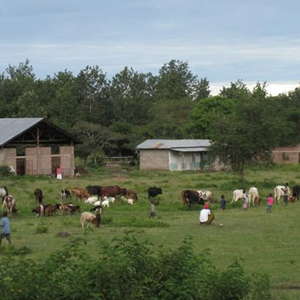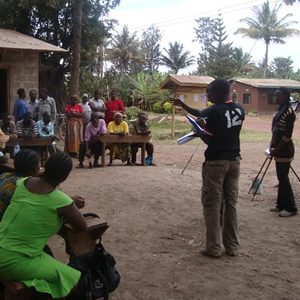- Campuses :
- Twin Cities
- Crookston
- Duluth
- Morris
- Rochester
- Other Locations


The Whole Village Project in partnership with the National Institutes of Medical Research (NIMR) and the Tanzania Wildlife Research Institute has gathered quantitative and qualitative data from more than 56 villages in northern Tanzania since September 2009.
 Measuring ImpactThe Whole Village Project (WVP), offers a cost-effective evaluation tool for projects undertaken at the scale of a small number of rural villages. The paper below describes the conceptual foundations of the WVP and some details of its implementation in rural Tanzanian villages. |

District and village reportsA core value of the WVP team is sharing the results of the data back with villagers, district and national government officials as well as policy makers, NGOs and other researchers. District and village officials have praised the WVP for returning to villages and sharing the results of the baseline data so that they can use this information for their own community development. One District Medical Officer wrote: “I would like to inform you that this [report] has been of great importance and gave us an insight on health issues…in the district…. Thanks and I promise to use the results for deciding proper interventions.” – Dr. B. Bisulu District reports containing summary village data can be accessed below. A summary of each district report can be accessed below. |

Cross-cutting issuesOur core indicators of wealth, food security, under-five nutrition, education, natural-resource use and civic engagement are essential to assessing the quality of development projects on the physical, social, environmental and economic health of rural communities. HIV/AIDSWith funding from PEPFAR/Tanzania, SFTZ has successfully provided HIV voluntary testing and counseling (VCT) to more than 8,166 men and women; 154% achievement beyond their target. In addition, HIV and AIDS educational and training events conducted have had very high participation by community members. Sector reports can be found below: Maternal Health, Malaria, and HIV/AIDS Natural Resources and Climate Change
|